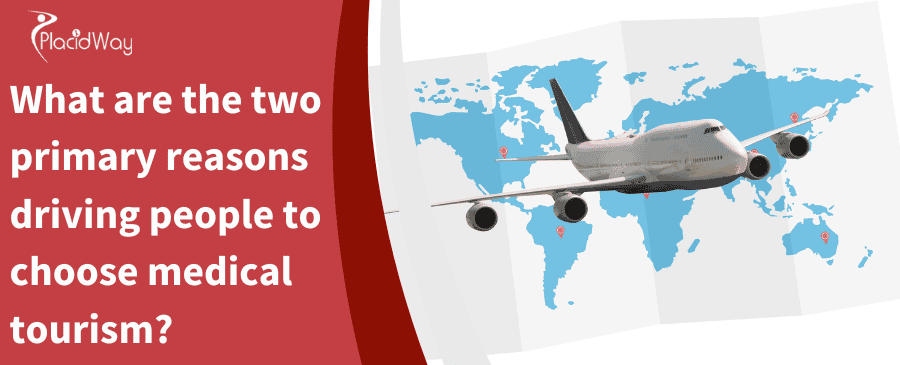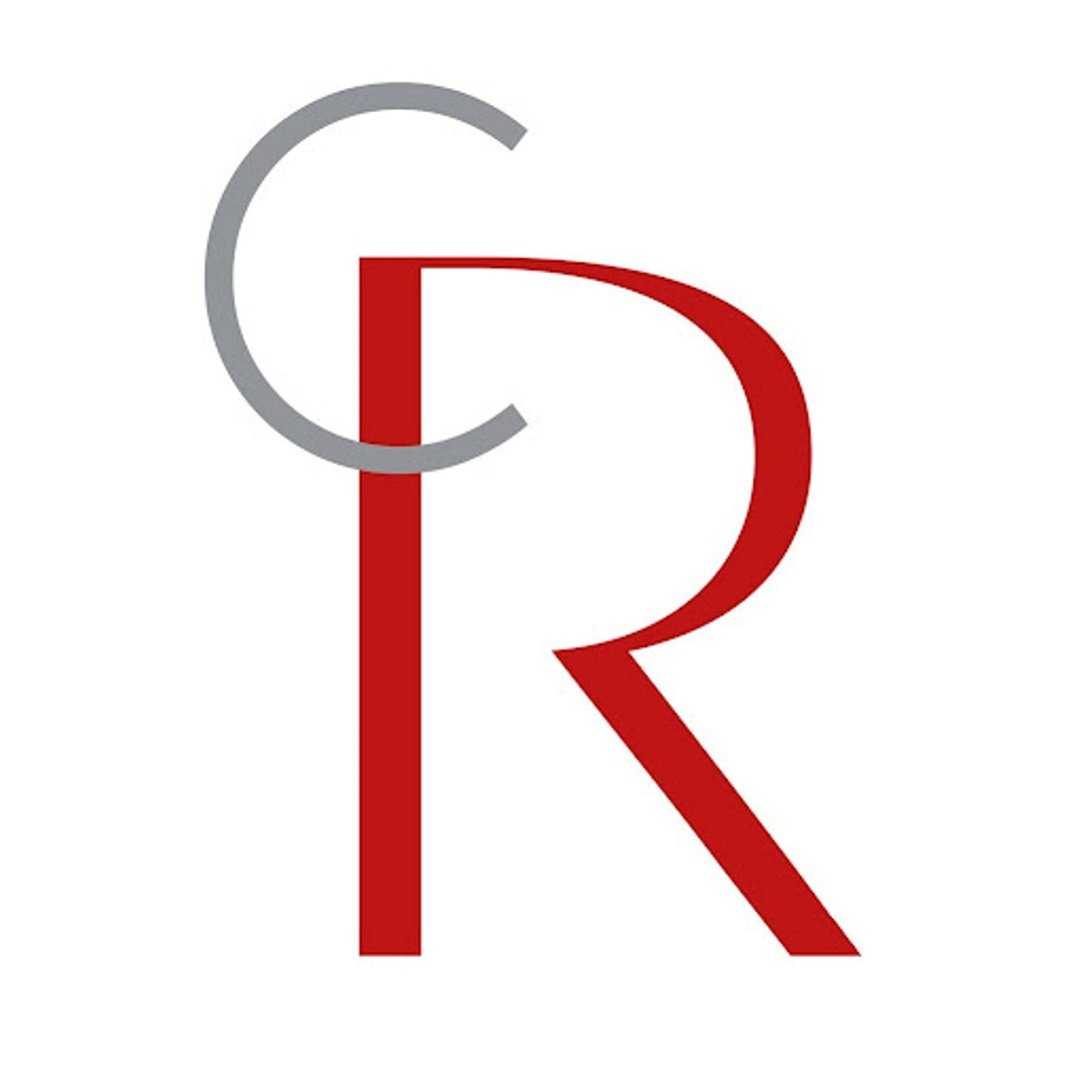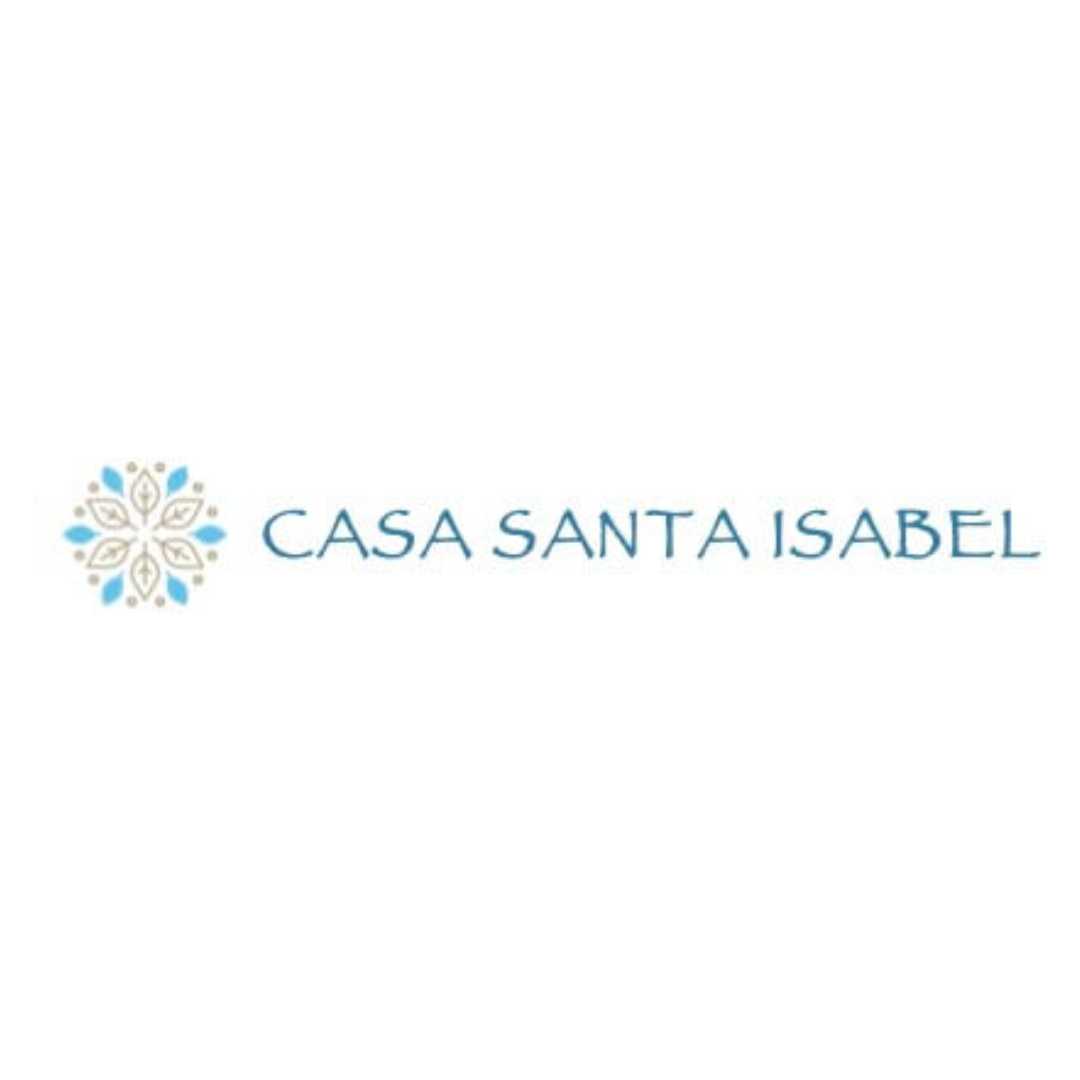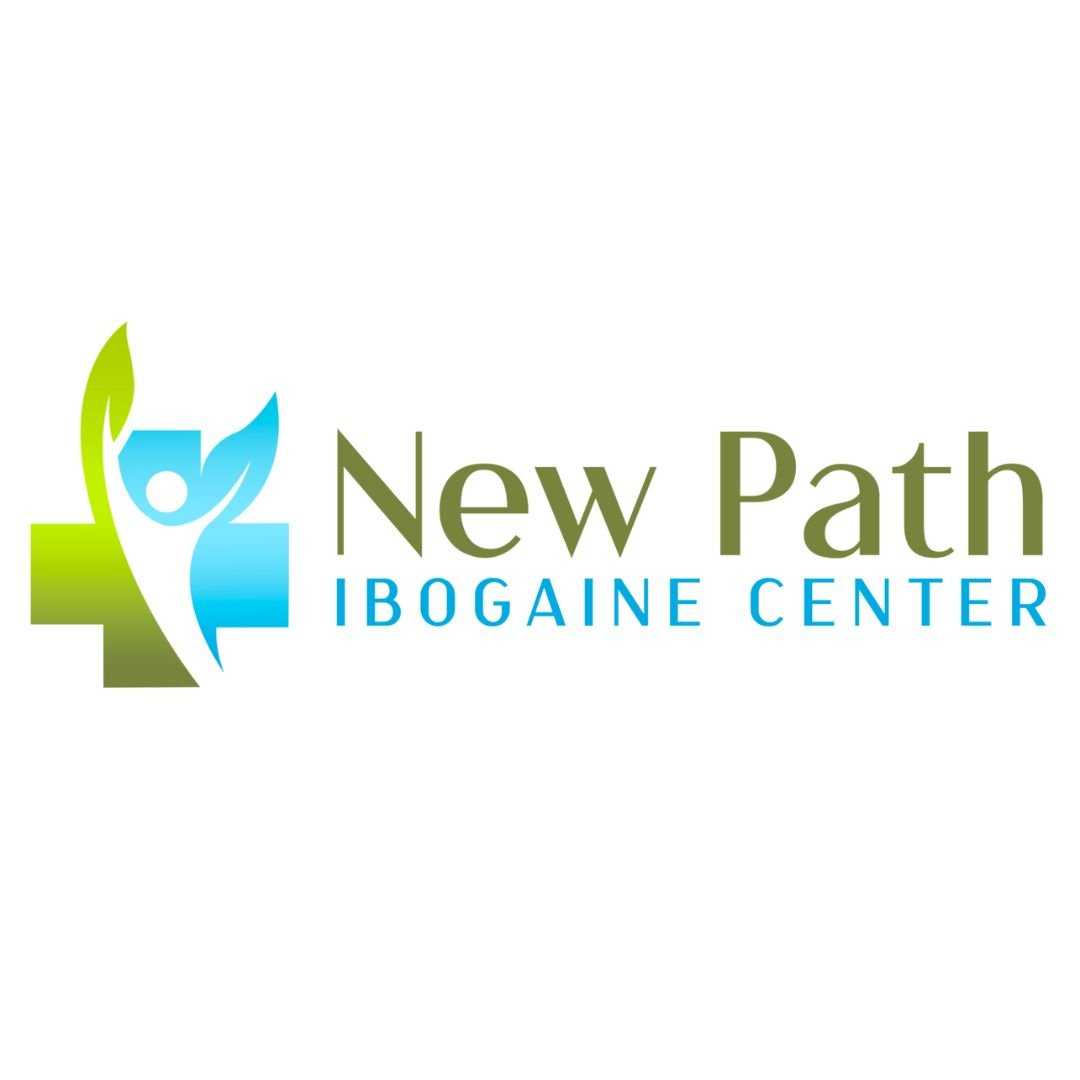Primary Reasons People Choose Medical Tourism

Have you ever considered traveling to another country for medical treatment? It might sound unusual, but it's a growing trend known as medical tourism. This involves individuals seeking healthcare services, from routine dental work to complex surgeries, outside their home country. The decision to pursue medical tourism is often driven by a combination of factors, but two stand out as the most influential: the desire for cost savings and the need for access to specialized medical treatments or shorter waiting times.
In many parts of the world, healthcare costs can be incredibly high, making essential procedures unaffordable for many. This pushes individuals to explore options abroad where the same quality of care might be available at a fraction of the price. Additionally, some countries face long waiting lists for certain procedures or lack specific advanced treatments, prompting patients to look elsewhere for faster or more specialized care. This blog post will explore these and other key questions surrounding medical tourism, providing a comprehensive guide to understanding this global healthcare phenomenon.
What are the primary reasons people choose medical tourism?
The appeal of medical tourism often boils down to two main benefits.
Firstly, the substantial difference in healthcare costs between countries can be a huge motivator. For many procedures, patients can save anywhere from 25% to 90% by traveling abroad. This is especially true for elective surgeries or treatments not covered by insurance at home.
Secondly, patients often seek medical tourism for access to treatments that are either unavailable in their own country, experimental, or have extremely long waiting lists. This allows them to receive timely care, which can be critical for serious conditions, or to explore advanced medical technologies and expertise.
How much can I save through medical tourism?
The potential cost savings in medical tourism are a major draw. For instance, a heart bypass surgery that might cost $123,000 in the U.S. could be performed for as little as $10,000 in India. Similarly, dental procedures, cosmetic surgeries, and orthopedic treatments are often significantly cheaper in popular medical tourism destinations like Turkey, Mexico, or Thailand. These savings cover not just the procedure itself but also potentially accommodation and travel, making the overall package highly economical.
The cost difference stems from several factors:
- Lower Labor Costs: Medical staff, including surgeons, nurses, and support personnel, often earn less in popular medical tourism destinations compared to Western countries.
- Reduced Administrative Overheads: Hospitals abroad may have lower operational costs.
- Less Expensive Malpractice Insurance: The cost of insurance for medical professionals can be significantly lower.
- Government Support: Some governments actively support their medical sector, which can help keep prices competitive.
What types of procedures are commonly sought in medical tourism?
Medical tourism covers a broad spectrum of medical services. Some of the most frequently sought procedures include:
- Cosmetic Surgery: Procedures like breast augmentation, rhinoplasty, liposuction, and abdominoplasty are popular due to their high cost in Western countries and the opportunity for discretion.
- Dental Care: Dental implants, veneers, crowns, and extensive dental work are highly sought after, as dental insurance often has limitations or high deductibles.
- Fertility Treatments: IVF (in-vitro fertilization) and other fertility-related procedures are often pursued due to their high cost and sometimes more relaxed regulations in other countries.
- Orthopedic Surgeries: Hip and knee replacements, spine surgeries, and other joint-related procedures are common, especially for those facing long waiting times.
- Cancer Treatment: Patients may seek alternative therapies, cutting-edge treatments, or more affordable options for cancer care.
Is the quality of care good in medical tourism destinations?
A significant concern for anyone considering medical tourism is the quality of care. Fortunately, many popular medical tourism destinations have invested heavily in their healthcare infrastructure.
Hospitals in countries like Turkey, India, Thailand, and Singapore boast international accreditations, such as those from the Joint Commission International (JCI), which signifies adherence to rigorous global standards for patient safety and quality of care.
Furthermore, many medical professionals in these countries receive training in Western nations, are fluent in English, and are highly experienced.
These facilities often utilize state-of-the-art equipment and advanced technologies, providing care that is on par with, or even exceeds, what patients might find in their home countries.
How do I choose a safe and reputable medical tourism provider?
Selecting a trustworthy provider is crucial for a successful medical tourism experience. Here are key steps to ensure safety and quality:
- Accreditation: Look for hospitals and clinics with international accreditations, such as JCI (Joint Commission International). This indicates that the facility meets strict global healthcare standards.
- Doctor Credentials: Verify the qualifications, experience, and specialization of the doctors and surgeons. Many international hospitals provide detailed profiles of their medical staff.
- Patient Reviews and Testimonials: Seek out reviews and testimonials from previous medical tourists. Online forums, social media groups, and dedicated medical tourism platforms can provide valuable insights.
- Medical Tourism Facilitators: Consider using a reputable medical tourism facilitator. These companies specialize in connecting patients with accredited facilities, handling logistics like travel and accommodation, and providing support throughout the process. They often have established partnerships with trusted providers.
- Communication: Ensure clear communication channels with the clinic and medical team, preferably in your native language or with reliable translation services.
What are the potential risks of medical tourism?
While medical tourism offers many benefits, it's important to be aware of the potential risks:
- Medical Complications: As with any medical procedure, there's always a risk of complications, infection, or an undesirable outcome. These risks can be compounded by traveling immediately after surgery.
- Follow-up Care: Ensuring proper follow-up care once you return home can be challenging. It's crucial to discuss post-operative care plans with your international medical team and your local doctor before you travel.
- Communication Barriers: Despite many doctors speaking English, language differences with nurses or support staff can sometimes lead to misunderstandings.
- Legal Recourse: If something goes wrong, legal recourse can be more complicated in a foreign country compared to your home country.
- Travel-Related Risks: Long flights after surgery can increase the risk of blood clots (DVT). It's important to discuss travel safety with your doctor.
How do waiting times influence the decision for medical tourism?
In countries with public healthcare systems or high demand for certain procedures, patients often face lengthy waiting lists.
This can be particularly frustrating and even detrimental for those in pain or with progressive conditions.
Medical tourism provides a viable alternative by offering significantly shorter wait times. For example, a hip replacement that might have a waiting period of several months or even a year in one country could be scheduled within a week or two in a medical tourism destination.
Does insurance cover medical tourism?
This is a critical question for many considering medical tourism. Typically, standard health insurance plans, especially in countries like the U.S. or Canada, do not cover medical treatments received abroad. However, there are exceptions:
- Specialized Medical Travel Insurance: Some insurance providers offer specific medical tourism insurance policies that cover procedures, complications, and travel-related issues when undergoing treatment overseas.
- Employer-Sponsored Programs: A growing number of employers and self-funded insurance plans are exploring medical tourism as a way to reduce healthcare costs for their employees. They might offer incentives or cover certain international procedures.
- Procedures Not Covered Domestically: For elective procedures like cosmetic surgery or fertility treatments, which are often not covered by traditional insurance, medical tourism offers a more affordable out-of-pocket option.
Always verify your specific policy details and discuss them with your insurance provider before making any plans.
What should I consider before traveling for medical treatment?
A well-planned medical tourism trip requires careful consideration of several factors:
- Thorough Research: Beyond just cost, research the destination, clinic, and medical team's reputation, success rates, and patient feedback.
- Medical Records: Gather all your relevant medical records, test results, and current medication lists to share with the international medical team.
- Consultation: Have a clear consultation with the overseas doctor, preferably via video call, to discuss your condition, the proposed treatment plan, and expected outcomes.
- Travel Logistics: Plan your travel, accommodation, and local transportation. Factor in recovery time and potential complications that might extend your stay.
- Post-Operative Care: Discuss the follow-up care required upon your return home and ensure your local doctor is willing to manage it.
- Legal Aspects: Understand the legal framework and patient rights in the destination country.
Are there language barriers in medical tourism destinations?
Communication is vital in healthcare.
In many top medical tourism destinations, especially those with a strong focus on international patients, medical staff, particularly doctors and surgeons, are often fluent in English. This helps ensure clear discussions about your diagnosis, treatment plan, and recovery.
However, language barriers might arise with administrative staff, nurses, or other support personnel.
Reputable clinics often provide professional interpreters or have multilingual staff to bridge this gap.
If you're arranging your trip independently, consider hiring a local interpreter or using translation apps for non-medical interactions to ensure a smooth experience.
Can I combine medical treatment with a vacation?
The idea of combining a medical procedure with a relaxing vacation, often called "medication," is appealing to many medical tourists. After undergoing treatment, patients might recover in a comfortable resort setting or explore local attractions. This can enhance the overall experience and make the journey more enjoyable. However, it is extremely important to:
- Prioritize Recovery: Your primary focus should be on your health and recovery. Do not overexert yourself or engage in activities that could jeopardize your healing process.
- Consult Your Doctor: Always discuss your post-procedure activity plans with your medical team to ensure they are safe and appropriate for your recovery stage.
- Timing: Plan your leisure activities for after the critical recovery period, as advised by your doctor.
What is the role of a medical tourism facilitator?
Medical tourism facilitators play a crucial role in simplifying the process for patients. They are essentially agencies that specialize in organizing international medical travel. Their services often include:
- Clinic and Doctor Selection: Helping patients find accredited hospitals and qualified doctors that specialize in their required treatment.
- Treatment Planning: Assisting with obtaining medical quotes and developing a comprehensive treatment plan.
- Travel Arrangements: Booking flights, accommodation, and ground transportation.
- Logistical Support: Arranging airport transfers, local transportation, and potentially even visas.
- Communication: Providing translation services and ensuring clear communication between the patient and the medical team.
- Pre- and Post-Care Coordination: Helping coordinate pre-travel tests and advising on post-operative follow-up care.
How do I prepare my medical records for international treatment?
Proper preparation of your medical records is essential for effective medical tourism. Here’s a checklist: Gather All Relevant Documents: This includes diagnostic reports, laboratory test results, X-rays, MRI scans, CT scans, and any previous surgical reports. Medication List: Create a comprehensive list of all current medications, including dosages and frequency. Allergies: Clearly list any known allergies to medications, foods, or other substances. Vaccination Records: Ensure your vaccination records are up-to-date, especially for international travel. Translate if Necessary: While many international hospitals can handle records in English, having key documents translated into the local language or a universally accepted medical format can be beneficial. Digital Copies: Keep digital copies of all your records on a portable device or cloud storage for easy access.
What are the most popular medical tourism destinations?
Several countries have emerged as leading destinations for medical tourism due to their blend of quality healthcare, affordability, and tourist appeal: Turkey: Known for cosmetic surgery, dental treatments, and hair transplants, offering high-quality services at competitive prices. India: A hub for complex surgeries, cardiology, orthopedics, and cancer treatment, often with significant cost savings. Thailand: Popular for cosmetic procedures, dental work, and wellness retreats, combining medical care with a holiday experience. Mexico: A common choice for dental work and bariatric surgery, especially for patients from North America due to its proximity. Singapore: Renowned for its advanced medical technology and highly specialized treatments, often attracting patients seeking high-end care. South Korea: A leading destination for cosmetic surgery and advanced diagnostic procedures, known for its cutting-edge technology.
How important is post-operative care in medical tourism?
The success of any medical procedure, especially surgery, relies heavily on adequate post-operative care. In the context of medical tourism, this becomes even more important and sometimes more complex. Before undergoing treatment abroad, you must: Understand the Plan: Have a clear understanding of the post-operative care plan provided by your overseas medical team, including medication schedules, wound care instructions, and follow-up appointments. Local Doctor Coordination: Discuss your plans with your primary care physician or a specialist in your home country. Ensure they are willing and able to take over your post-operative care once you return. This might involve sharing medical records and discharge summaries from the international hospital. Communication: Maintain open communication with both your overseas and local healthcare providers to ensure a seamless transition of care. Recovery Environment: Plan for a suitable recovery environment, whether it’s at a local hotel near the clinic or back in your home. Neglecting post-operative care can lead to complications, undermine the success of the procedure, and potentially increase overall costs due to unexpected follow-up treatments.
Can medical tourism offer treatments unavailable at home?
One of the compelling reasons for choosing medical tourism is the opportunity to access treatments that are simply not available in your home country. This can be due to: Regulatory Restrictions: Some countries have strict regulations or approval processes that delay or prevent certain treatments from being offered. Experimental Therapies: Patients with rare or complex conditions might seek out clinical trials or experimental therapies in other nations. Specialized Expertise: Certain medical procedures or technologies might require highly specialized expertise that is concentrated in specific international centers. New Technologies: Some countries are at the forefront of medical innovation, offering access to cutting-edge technologies before they become widely available elsewhere.
How has technology impacted medical tourism?
Technological advancements have revolutionized the medical tourism industry: Information Access: The internet and online platforms have made it incredibly easy for patients to research international hospitals, compare prices, read reviews, and connect with healthcare providers worldwide. Telemedicine: Video consultations allow patients to have initial assessments and discussions with overseas doctors from the comfort of their homes, reducing the need for multiple trips. Advanced Diagnostics and Treatment: Many international hospitals are equipped with the latest medical technologies, including robotic surgery, advanced imaging, and precision medicine, providing access to sophisticated care. Communication Tools: Instant messaging, video calls, and translation apps have made communication with international medical teams much smoother. Digital Medical Records: Electronic health records (EHRs) facilitate the secure sharing of patient information between local and international providers, improving continuity of care.
What is the typical duration of a medical tourism trip?
The length of your medical tourism trip depends entirely on the type of procedure you're undergoing and the required recovery time. It's important to differentiate between immediate post-operative recovery (hospital stay) and full recovery. Here's a general breakdown: Short Stays (3-7 days): Common for dental procedures (e.g., fillings, cleanings, crowns, veneers). Minor cosmetic injections or diagnostic tests. These often require a short initial visit and then a follow-up or a single, quick visit. Medium Stays (1-3 weeks): Typical for elective surgeries like cosmetic procedures (e.g., rhinoplasty, breast augmentation). Less complex orthopedic surgeries. This allows for the procedure itself and an initial recovery period before traveling home. Long Stays (3 weeks to several months): Necessary for major surgeries (e.g., organ transplants, complex cardiac procedures). Treatments requiring extensive rehabilitation. These trips might also involve multiple stages of treatment spread over time. Always factor in potential delays or complications that could extend your stay and plan accordingly.
Are there cultural differences to consider in medical tourism?
When undertaking medical tourism, understanding and respecting cultural differences can greatly enhance your experience: Communication Styles: Some cultures may have more indirect communication styles, while others are very direct. Be patient and ask for clarification if needed. Patient-Doctor Relationship: In some cultures, doctors may be seen as absolute authorities, with less emphasis on patient input compared to Western healthcare models. Hospital Environment: The general atmosphere, visitor policies, and even food options in hospitals can vary significantly. Religious or Dietary Needs: If you have specific religious or dietary requirements, communicate these in advance to ensure they can be accommodated. Privacy: Perceptions of privacy and modesty can differ, especially during examinations or personal care. Being aware and adaptable to these differences can prevent misunderstandings and contribute to a more positive experience.
What documentation do I need for medical tourism travel?
The essential documents for medical tourism travel include: Passport: A valid passport with sufficient validity (usually at least six months beyond your planned return date). Visa: Check if the destination country requires a medical visa. Many countries have specific visa categories for medical tourists, which might require an invitation letter from the hospital. Medical Records: Carry both physical and digital copies of all your relevant medical documents, including diagnosis, test results, and treatment plans. Travel Insurance: Although standard health insurance may not cover treatment, travel insurance is crucial for emergencies, travel delays, or lost luggage. Financial Proof: Be prepared to show proof of funds to cover your medical expenses and stay. Accommodation and Travel Itinerary: Copies of your flight tickets, hotel bookings, and any other travel arrangements.
How do I handle payment for medical treatments abroad?
Handling payments for medical tourism usually involves several methods: Upfront Deposit: Many international hospitals require a deposit before your arrival or before scheduling the procedure. Wire Transfer: This is a common method for larger payments, allowing you to transfer funds directly to the hospital's bank account. Credit Card: Most international hospitals accept major credit cards, but be aware of foreign transaction fees and potential daily spending limits. Cash: While useful for smaller expenses, carrying large amounts of cash is generally not recommended for security reasons. Payment Plans: Some facilities might offer payment plans, especially for more expensive procedures, but this is less common for international patients. Always get a clear, itemized cost estimate from the hospital beforehand and understand the payment terms.
Are there specific considerations for dental tourism?
Dental tourism is a highly popular segment of medical tourism, primarily driven by cost savings. Specific considerations for dental procedures include: Procedure Complexity: Simple procedures like fillings might require one visit, while complex ones like multiple dental implants often require two trips spread over several months (one for implant placement, one for crown attachment after healing). Materials Used: Enquire about the quality and brand of materials used for implants, crowns, and veneers, as these can vary significantly and affect longevity. Dentist's Experience: Research the dentist's qualifications, experience in specific procedures, and patient reviews. Lab Quality: Dental labs that fabricate crowns and veneers can impact the final aesthetic and fit. Ask about the lab they work with. Post-Procedure Care: Understand the recovery process and any specific aftercare instructions, especially if you're traveling home immediately after a procedure.
What is the average recovery time for common medical tourism procedures?
Recovery time is a critical factor in planning a medical tourism trip. It's important to differentiate between immediate post-operative recovery (hospital stay) and full recovery. Here's a general breakdown: Dental Procedures: Fillings/Cleanings: Minimal to no recovery time. Crowns/Veneers: A few days of sensitivity. Implants: Several months for osseointegration (bone fusion) before the final crown is placed, but immediate discomfort is typically a few days to a week. Cosmetic Surgery: Rhinoplasty/Blepharoplasty: 1-2 weeks for initial swelling to subside. Breast Augmentation/Liposuction: 2-4 weeks for initial recovery, several months for final results. Facelift/Tummy Tuck: 3-6 weeks for significant healing, several months for complete recovery. Orthopedic Surgeries (e.g., Knee/Hip Replacement): Initial recovery in hospital: 3-7 days. Rehabilitation: Several weeks to months of physical therapy. Cardiac/Major Surgeries: Initial hospital stay: 7-14 days. Full recovery: Several months, with ongoing rehabilitation. Always consult your surgeon for a personalized recovery timeline and plan accordingly, allowing for buffer time in your travel schedule.
Can I bring a companion on my medical tourism trip?
Bringing a companion on your medical tourism trip is highly recommended, especially for significant procedures. A companion can provide: Support: Emotional and practical support during stressful times. Logistics: Assistance with navigating the new environment, transportation, and appointments. Communication: Help with understanding medical information or translating if there's a language barrier. Advocacy: Acting as an advocate on your behalf if needed. Post-Operative Care: Assisting with immediate post-operative needs and ensuring you follow instructions. Many hospitals and medical tourism facilitators are accustomed to patients traveling with companions and can help arrange suitable accommodation that caters to both your needs.
What are the ethical considerations in medical tourism?
While medical tourism offers many benefits, it also raises several ethical concerns: Patient Safety and Quality: Ensuring that quality standards are consistently met across different jurisdictions and that patients are not put at unnecessary risk. Informed Consent: Making sure patients fully understand the risks, benefits, and alternatives of their treatment, especially across cultural and linguistic divides. Continuity of Care: The challenge of providing comprehensive follow-up care when patients return to their home countries. Exploitation of Vulnerable Patients: The risk that patients, desperate for treatment, might be exploited by unethical providers or facilitators. Impact on Local Healthcare Systems: The potential for a drain on local medical resources if highly skilled professionals are primarily catering to international patients, or if local populations face increased costs or reduced access to care. Organ Trafficking: A serious concern, particularly for transplant tourism, though reputable medical tourism providers vehemently distance themselves from such illegal activities. Patients should choose accredited providers and facilitators to mitigate these risks.
How can I ensure patient safety during my medical tourism journey?
Ensuring your safety throughout your medical tourism journey is paramount. Here's how to maximize it: Choose Accredited Facilities: Stick to hospitals and clinics that hold international accreditations like JCI (Joint Commission International). This is a strong indicator of high safety and quality standards. Verify Medical Professionals: Research the specific doctors and surgeons who will be treating you. Look for their qualifications, experience, specializations, and any professional affiliations. Comprehensive Consultations: Have thorough pre-travel consultations with your chosen medical team. Ask detailed questions about the procedure, potential risks, success rates, and the recovery process. Ensure all your questions are answered to your satisfaction. Pre- and Post-Operative Planning: Establish a clear plan for both your pre-operative preparation and post-operative care. Know what tests are needed beforehand and how follow-up care will be managed upon your return home. Medical and Travel Insurance: Secure both medical complications insurance (which covers issues arising from the overseas treatment) and comprehensive travel insurance (for travel disruptions, emergencies, etc.). Transparency in Costs: Get a detailed, itemized breakdown of all costs involved before committing to treatment. Avoid any hidden fees. No Pressure to Proceed: A reputable provider will never pressure you into undergoing a procedure. Take your time to make an informed decision. Understand Legal Protections: While challenging, be aware of patient rights and legal recourse options in the destination country in case of adverse events.
What should I look for in a medical tourism package?
A well-structured medical tourism package should be transparent and comprehensive. Here’s what to look for: All-Inclusive Pricing: Ideally, the package should cover the full cost of the medical procedure, surgeon's fees, anesthesia, and hospital stay. Pre- and Post-Operative Care: Inquire about what diagnostic tests are included before the procedure and what follow-up appointments are covered afterward. Accommodation: Many packages include hotel stays, especially for the recovery period. Confirm the quality and proximity of the accommodation to the hospital. Transportation: Look for inclusions like airport transfers and transportation between the hotel and clinic. Language Support: Confirm if translation services are provided, especially during medical consultations. Personalized Itinerary: A good package will offer a tailored itinerary, accounting for your treatment schedule and recovery needs. Support Services: Some packages include a dedicated case manager or concierge service to assist you throughout your journey. Transparency on Exclusions: Understand what is not included in the package, such as medication, flights from your home country, or unexpected complications. Always request a detailed breakdown of services and costs before finalizing your plans. Considering medical tourism for your healthcare needs? PlacidWay can connect you with world-class medical facilities and experienced professionals globally, helping you navigate your options for affordable and quality care. Explore our solutions today!


.png)




.png)


.png)






Share this listing